Crohn's Disease Calcium Oxalate Stones
Crohn's disease calcium oxalate stones. Oxalate Stones What is Oxalate. Calcium Oxalate Stones. With the fat malabsorption unabsorbed long.
As noted above section on calcium oxalate stones people with inflammatory bowel disease Crohns disease ulcerative colitis tend to have hyperoxaluria and form oxalate stones. In about 30 of the patients with Crohns disease can be found extra-intestinals symptoms. Last Updated on Thu 03 Sep 2020 Crohn Disease.
Patients who have Crohn disease with ileal disease or ileal resection are also likely to form calcium oxalate kidney stones. Nephrolithiasis is one of them and the appearance of kidney stones mainly of oxalate of calcium is more common in these patients than in general population. Hyperoxaluria The importance of intestinal oxalate absorption is supported by observations regarding the effect of dietary calcium.
Urate stones are especially common after colon resection. In about 30 of the patients with Crohns disease can be found extra-intestinals symptoms. ReDOUBTwhy oxalate stones in Crohns.
People with Crohns disease in the small intestine are more at risk for urolithiasis due to the bodys failure to absorb fat. I form stones at a ridiculous rate. I have had multiple surgeries and no longer absorb water that well at all.
Arrythmia - 090109 1216. Stones from bowel disease. Crohns disease - a cause of arthritis oxalate stones and fistulae in cystic fibrosis.
These stones are usually CaOx but there is a marked increase in the tendency to form uric acid stones as well particularly in patients with colon resectio. Electrolyte imbalances from impaired intestinal absorption raise the risk of this type of kidney stone.
In about 30 of the patients with Crohns disease can be found extra-intestinals symptoms.
Although most of oxalate comes from its formation in the body 50 10-15 is derived from. Spinach vitamin C metabolism and synthesis within the body. Patients who have Crohn disease with ileal disease or ileal resection are also likely to form calcium oxalate kidney stones. Nephrolithiasis is one of them and the appearance of kidney stones mainly of oxalate of calcium is more common in these patients than in general population. These stones are usually CaOx but there is a marked increase in the tendency to form uric acid stones as well particularly in patients with colon resectio. Calcium Oxalate Stones in Crohn Disease Internal Medicine Series. Calcium oxalate kidney stones are more common in patients with Crohns disease CD. Electrolyte imbalances from impaired intestinal absorption raise the risk of this type of kidney stone. The primary objective of this study is to establish optimal oral calcium supplementation in Crohns patients who have had an ileal bowel resection.
Patients who have Crohn disease with ileal disease or ileal resection are also likely to form calcium oxalate kidney stones. Last Updated on Thu 03 Sep 2020 Crohn Disease. As noted above section on calcium oxalate stones people with inflammatory bowel disease Crohns disease ulcerative colitis tend to have hyperoxaluria and form oxalate stones. This population is at high risk for calcium oxalate kidney stones a direct consequence of extensive gut malabsorption and enteric hyperoxaluria. However in the latter urinary oxalate concentration is often normal and the formation of stones is mainly secondary to the abnormalities in its solubility. ReDOUBTwhy oxalate stones in Crohns. Increased bowel fat combines with intraluminal calciumhence no calcium to combine with oxalateit gets absorbedany small increase inoxalate forms stone.



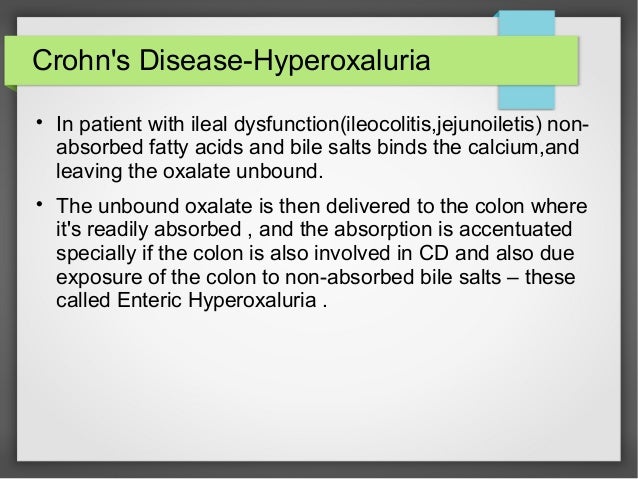



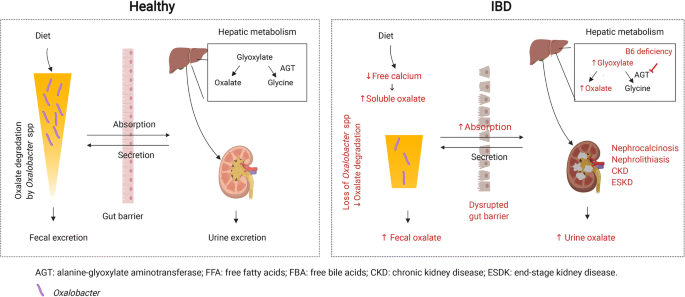









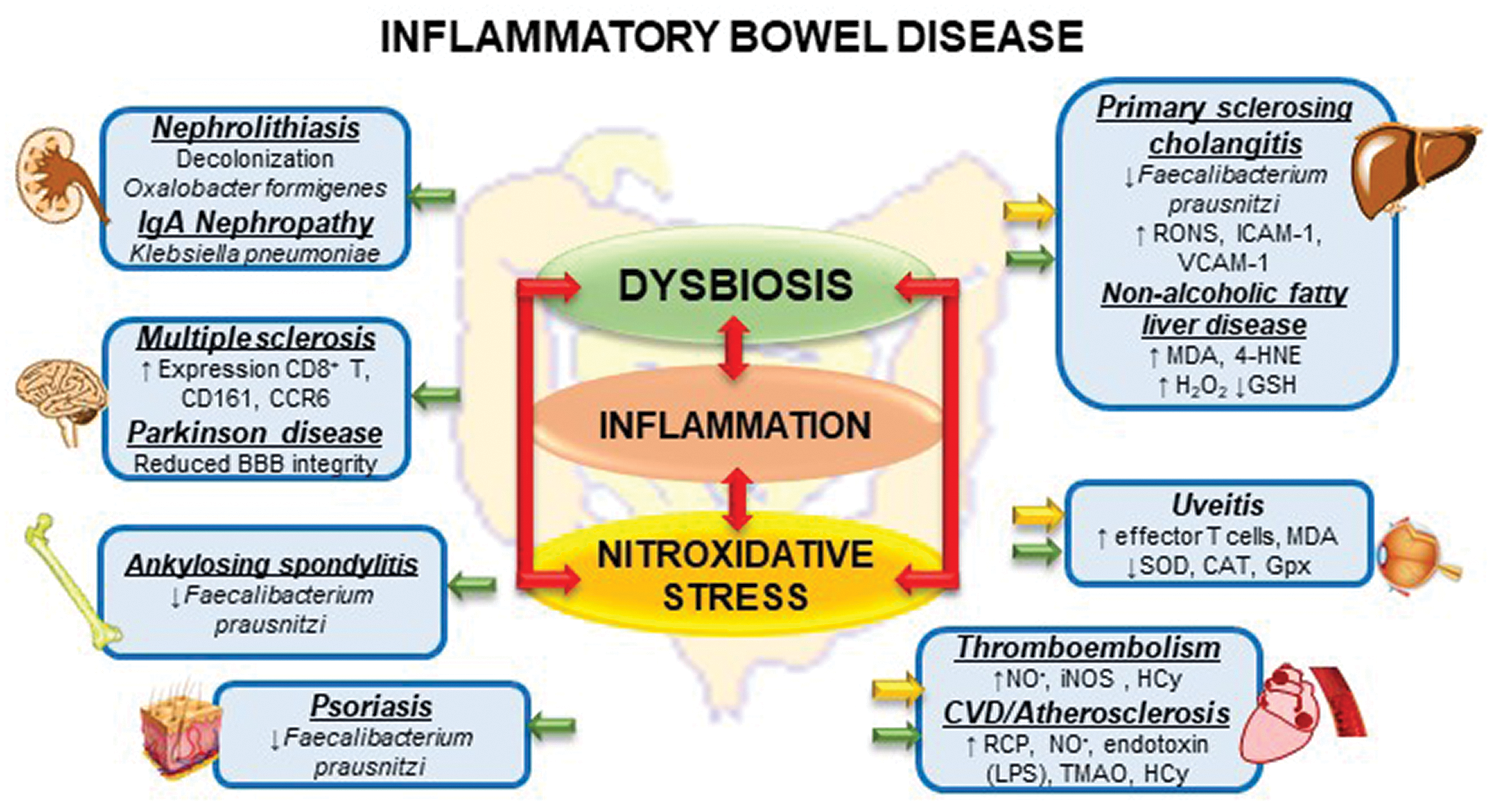



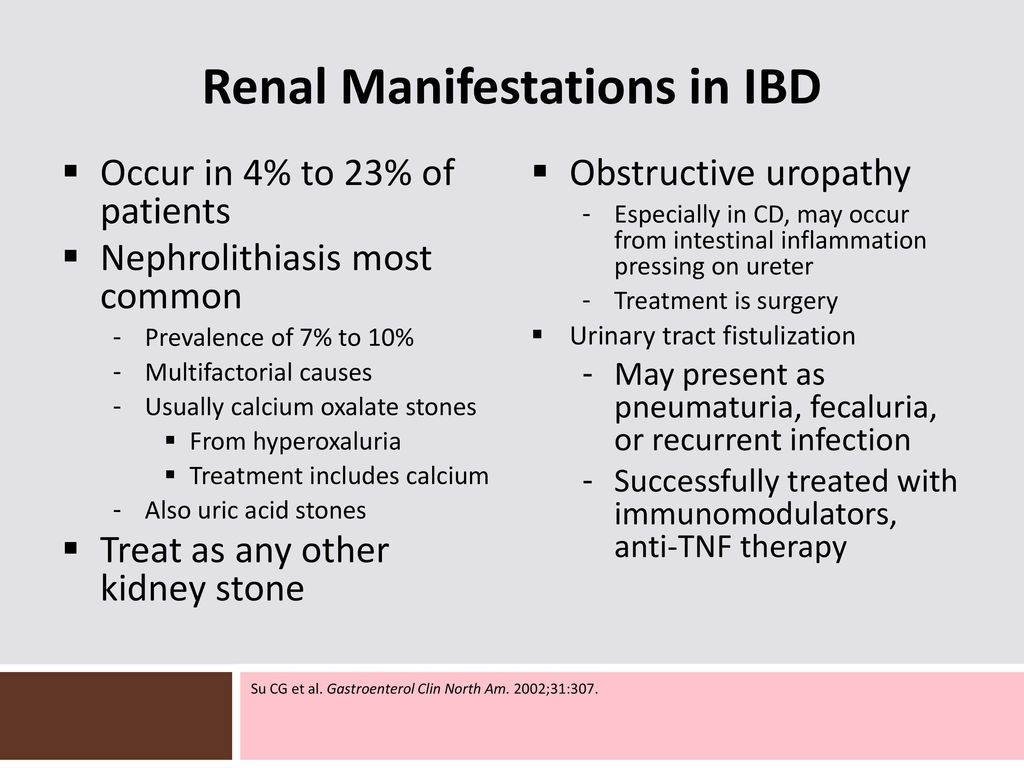




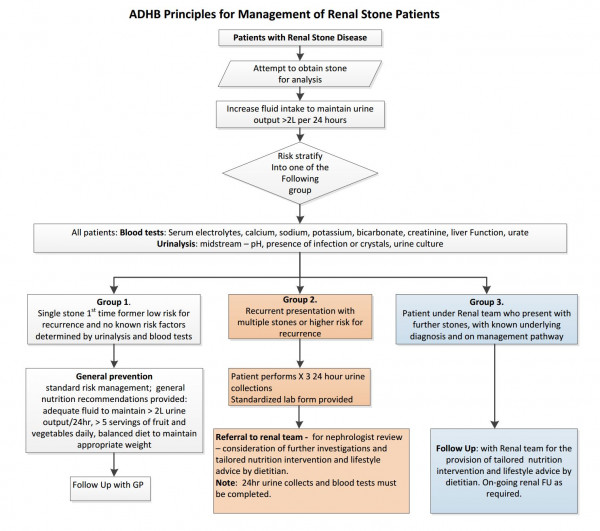






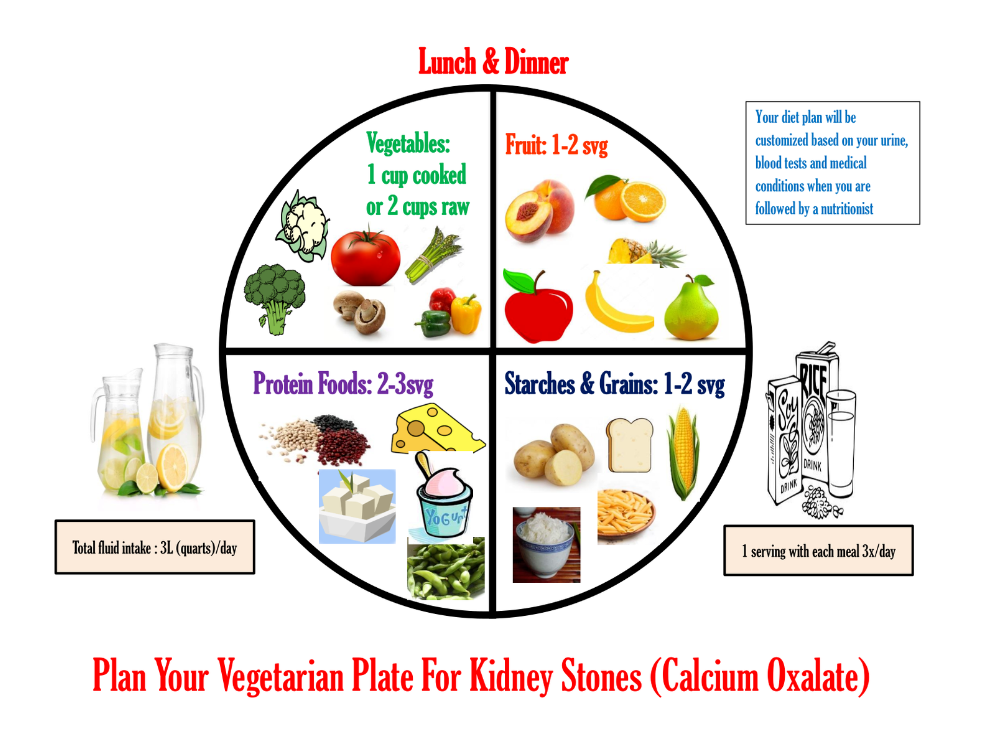


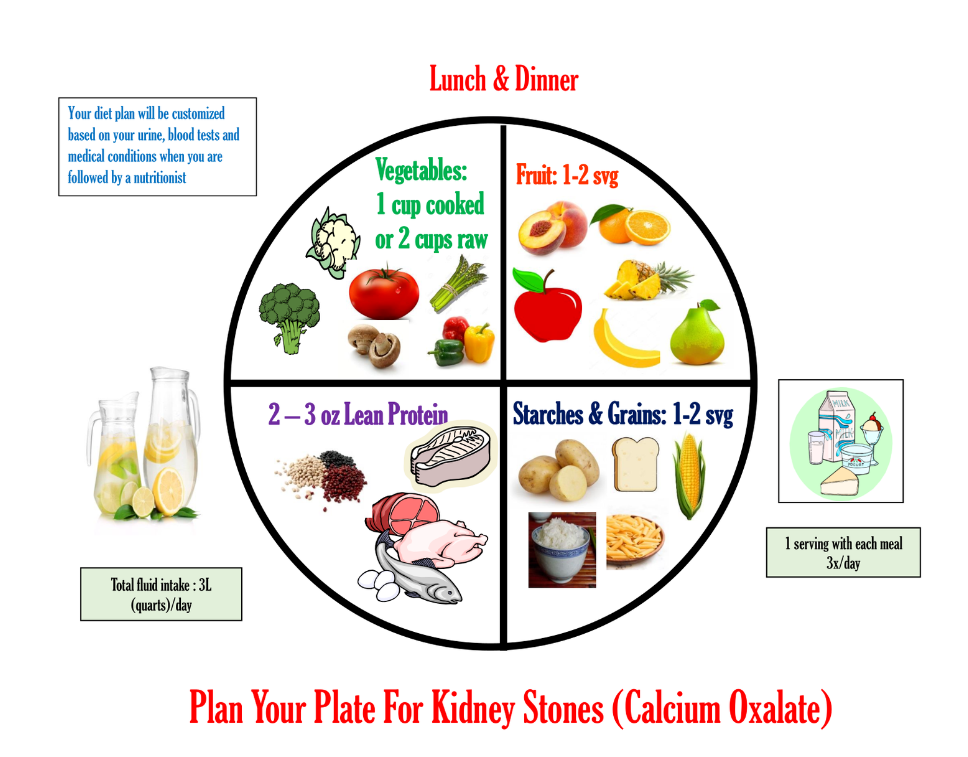

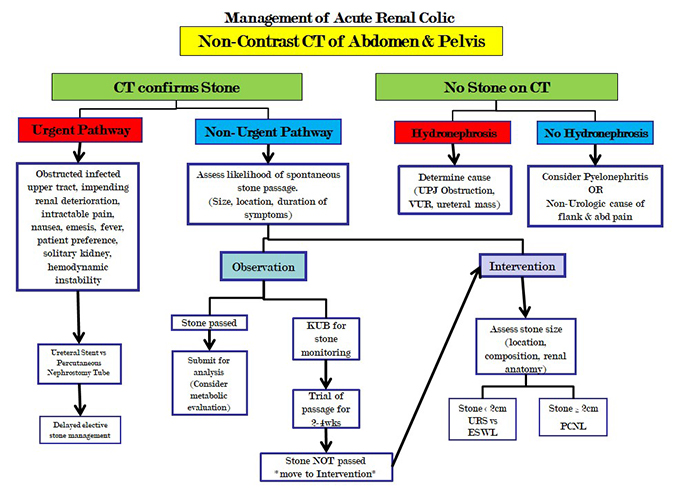

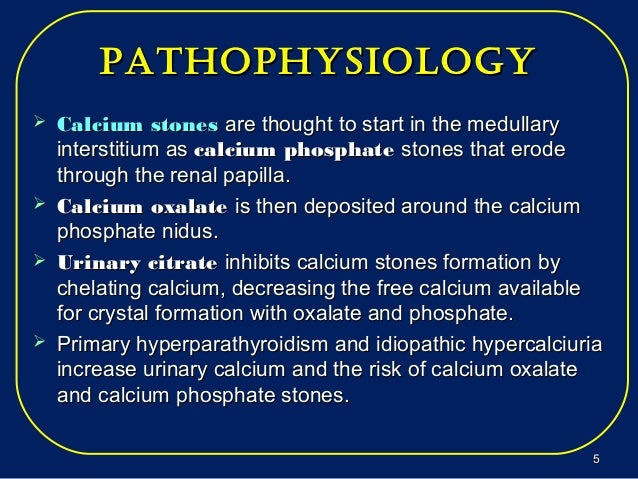
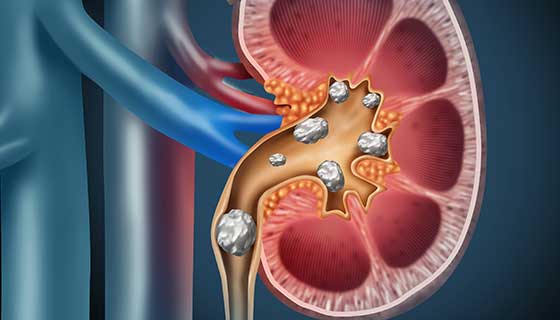



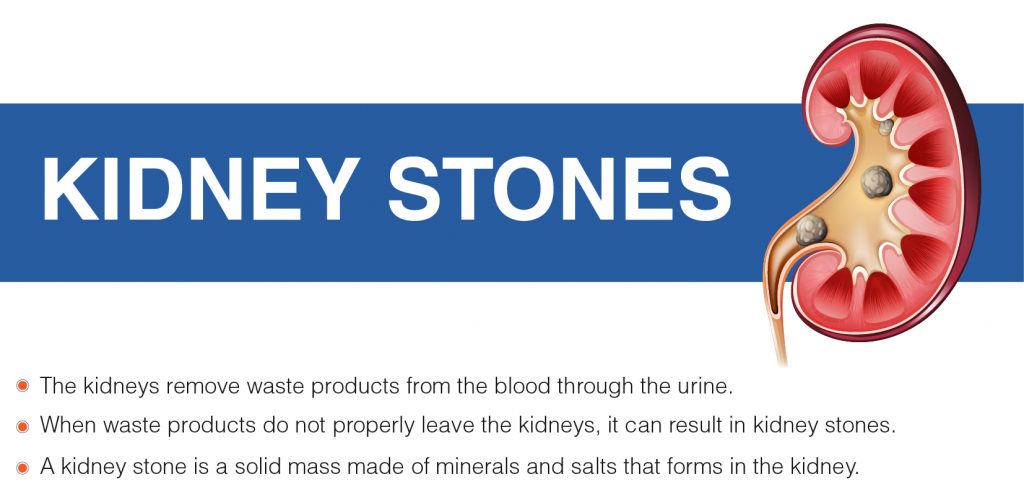
Post a Comment for "Crohn's Disease Calcium Oxalate Stones"